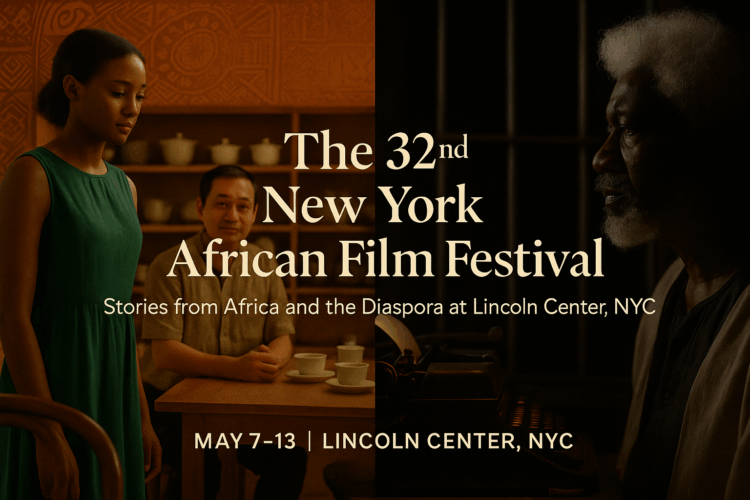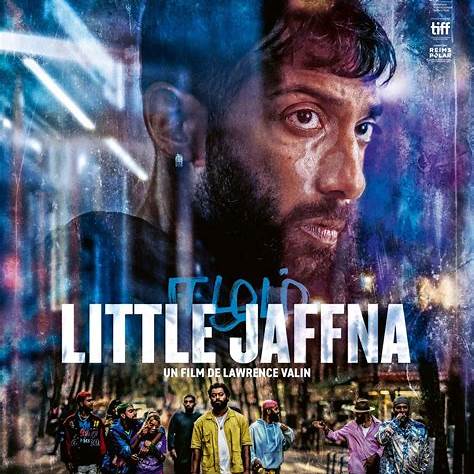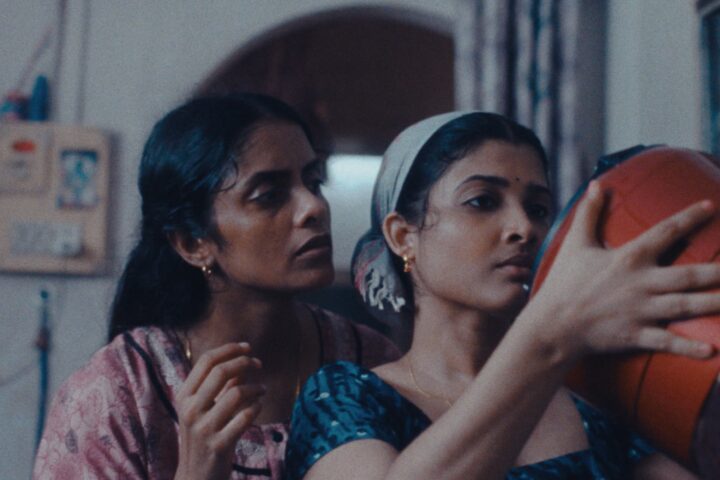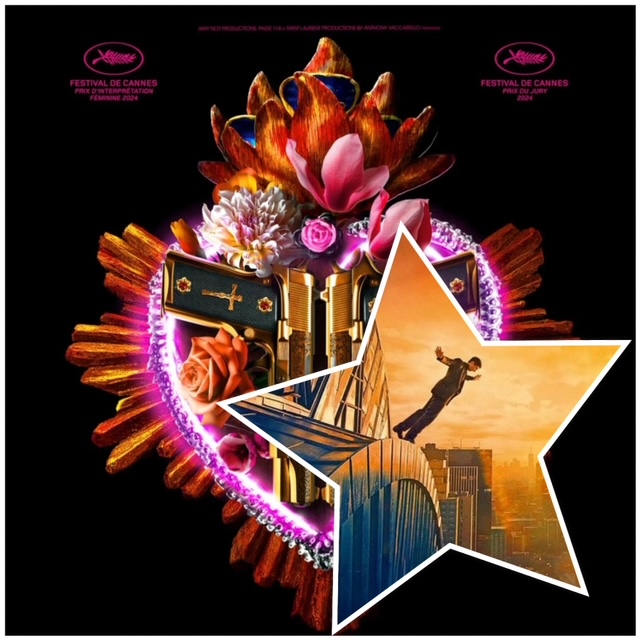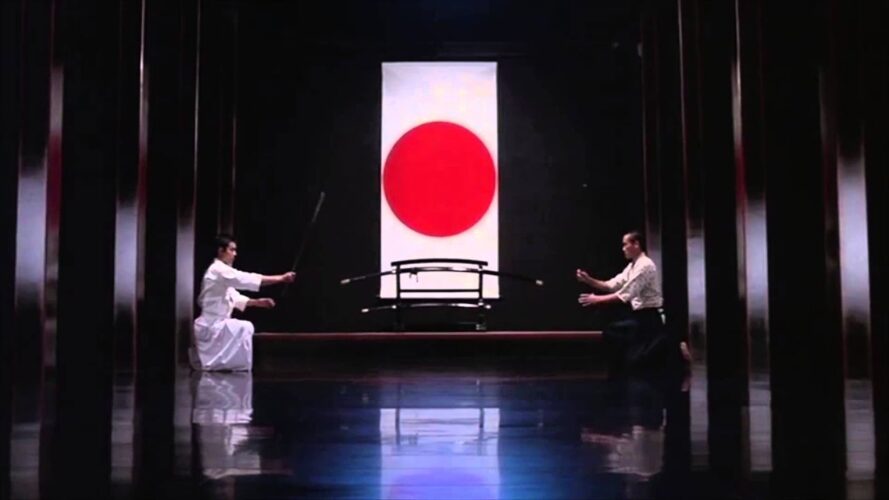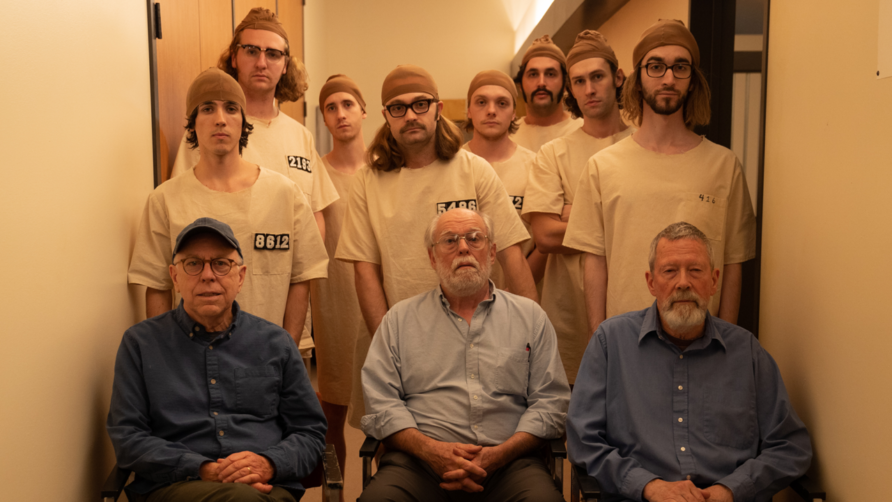Estimated reading time: 10 minutes
Odyssey | 2022
Cinema is very much an international art form, with films made in countries from around the world. It has only been two short years since the South Korean feature, Parasite, a blistering attack on the wealth gap, made history in winning the Oscar for best foreign language film as well as going on to do an unprecedented double and winning the main Oscar for best film as well. And yet if you look closely you will see that fewer and fewer foreign language films actually do receive an international general release. This is particularly true when it comes to Chinese language films, smaller independently produced features are largely ignored, while the big block busters which do get a general release are often dismissed as government propaganda. With the exception of films made by the legendary Chinese film director Zhang Yimou, very few Chinese features actually are seen at cinemas outside China. Some critics point to international audiences’ dislike of the country’s policies in terms of censorship.
It is true that the Chinese government do censor the films the country produces, but they are hardly alone in doing this. India their geographic neighbour does so as well and perhaps far more stringently since films were until recently not even allowed to include a kiss. And yet Indian films are seen around the world. It’s important also to note that American cinema does work within its own form of censorship, in that country’s case it is censorship dictated by a film’s perceived commercial viability, if a studio feels a film will not make money, that film will simply not be made.
It’s interesting to note that legendary Russian filmmaker Sergei Eisenstein, largely considered to be the father of cinema, briefly in the 1920’s attempted to work in Hollywood. He lasted a year, after which time the studio he was working for, frustrated with his painstaking working practices, cancelled his contract. Even history’s greatest film director couldn’t crack Hollywood’s own brand of censorship. A censorship driven by an unquenchable desire for unbridled profits, a situation in which commercial viability often wins out and art invariably loses.
In light of this, it’s a real treat to welcome the second edition of the Odyssey film festival. A festival devoted exclusively to screening Chinese films. With over sixty plus films in the festival and ten panel discussions, the festival offers a unique opportunity to see contemporary China on the screen.
Below are some of my favourites.
Wind
Wind directed by Dadren Wanggyal, looks at a rural Tibetan community where women traditionally are not allowed to join the ritual Sang Offering (an annual religious event). Gelak, the film’s central character, is the illegitimate daughter of Samdan, a woman who has had to rely on the generosity of men to survive. The film gives audiences a rare glimpse into Tibetan society as well as the roles women occupy within it. And although there is absolutely no mention of the politics which of course govern these peoples’ lives, it very much humanises the Tibetan community which is so rarely seen on the screen and in the process shatters some cultural stereotypes. It also celebrates the life of a young woman who will not be bound by tradition.
Lan Yu
Lan Yu directed by the legendary Hong Kong film director Stanley Kwan, tells the profoundly moving and tragic love story of a same sex couple, the affluent but promiscuous businessman Handong and a sensitive rural architectural student Lan Yu. The story is told in reverse since it begins with its tragic conclusion and then moves backwards in time to beginning of the love affair. Adapted from a novel published anonymously, Lan Yu is simply breath-taking to watch in its depiction of a love affair, one which ultimately changes the course of the lead character, Handong’s life. Stanley Kwan is perhaps the only out Asian film director working in the industry today and his own relationship with the material in many ways gives the film its sense of authenticity. It is also one of the very few Chinese language films to mention the events of 1989. Trailer with French subtitles:
A Girl from Hunan
A Girl from Hunan directed by Lan Wu tells the heart-breaking story of a teenager sold to a village where she is married to a two-year-old boy and expected to be his nanny until he comes of age, at which point she will then become his wife. The teenager perhaps not surprisingly rebels and begins an affair with a local man and the film charts the consequences. A Girl from Hunan takes a clear-view at how rural traditions can destroy the lives of women who live there, the film though also shows how in many cases it can also be the complacency of older women who inadvertently keep these traditions in place.
Only You Alone
Only You Alone directed by Zhou Zhou looks at the life of a passionate ballroom dancer Li Chi who also suffers from epileptic seizures brought on by her dancing. Li Chi is an orphan whose only close relationship is with a distant Aunt who lives thousands of miles away in Australia. Her aunt only arrives in town in order to sell the very same flat Li Chi now lives alone in. The film though looks at her determination to find a way to live an independent life on her own terms.
Love Conquers All
Love Conquers All directed by former journalist Chui Mui Tan and shot almost like a documentary charts the emotional journey a rural girl, Ping, makes when she moves from Malaysia’s rural Chinese community to cosmopolitan Kuala Lumpur where she works for her aunt in her restaurant there. Despite the fact that Ping has a devoted boyfriend back in her local village, she becomes entangled with a local bad boy. You heart sinks when the film reveals him to be a pimp, it sinks even further when you see that no matter the sudden turn of events, Ping cannot somehow extricate herself from him. She slips into a dark all engulfing hole still believing that Love Conquers All. There are many films about toxic relationships, which perhaps inadvertently condemn the women who are in them, but Chu Mui Tan is too talented a director to do this, she simply shows viewers how easy it is to become lost in love.
Dwelling in the Fuchun Mountains
Dwelling in the Fuchun Mountains is my personal favourite. A simply sublime look at the lives of an extended family over the course of one year. A family who have been thrown into turmoil after the family matriarch falls ill. In many ways she has been the glue keeping the family together and now with her health in decline all the rivalries which have lurked underneath the surface come to the forefront. The family also have to work out who in fact will be responsible for her care. Not an easy task since all the family members live very complicated lives. Filmed over the course of two years by director Gu Xiaogang a former fashion design student. The film is simply stunning to look at and in many ways is reminiscent of Terence Malick’s best work. It’s astonishing when you realise that Xiaogang did not use professional actors to play the roles but everyday people, it’s an astonishing fact since when you watch the film you feel as if you have spent a year as part of their lives. Dwelling in the Fuchun Mountains was the closing film for the Cannes Film Festival in 2019 and it’s very easy to see why it was chosen since it is a beautiful and compassionate look at contemporary Chinese life.
For the trailer in French:
Un fleuve: a large river | Une ville: a city | Une famille: a family
Une fresque ambitieuse et superbe: An ambitious and superb fresco
Un premier film d’une pure beauté: A first film of pure beauty
The Shorts
Two shorts which also deserve a mention are:
Two Hundred Cigarettes from Now
Two Hundred Cigarettes from Now directed by Tianyu Ma, looks at the madcap life of a female film director who because of a crush decides to takes a gap year and travels to America in pursuit. On one hand it’s a comedy on the other hand it’s also a look at how an artist takes her own rather complicated life and turns it into art.
Then She Went on Stage
Then She Went on Stage directed by Yuzhuo Wang looks at how a child copes with the knowledge of the fact that her mother is dying. In the film we see the difference between how she is told she should feel and her reality. A great film with a lovely central performance from the diminutive Xinyi Shan.
Alongside the films there have been several fascinating panel discussions, one looked at press coverage of Chinese language films chaired by Martha Harwood. During the panel discussion, it was pointed out that sadly much of that coverage of mainland Chinese cinema is often extremely biased and woefully uninformed (interestingly this has traditionally not been the case for films from Hong Kong and directors such has Wong Kai Wai are household names in the west). One of the members of the panel though pointed out that journalists write for their readers, if their readers have a certain point of view of a country, it is often difficult even in a film review to challenge it.
Jiakai Nie this year’s Head of Festival says “I think the festival perfectly matches my goal and dream, which is to bring outstanding Chinese films to the UK and break the stereotype of Chinese cinema.”
Watching the films, it’s easy to see what the world seems to be missing and it is that China has a rich, and varied cinematic tradition. Although there are clearly topics which are off limits for directors there, filmmakers have in fact found inventive ways to work around these constrictions and in the process they make films which are both breathtakingly beautiful and ultimately quite profound.
For those who may have missed the festival but would like to see Chinese films try: En | CATHAYPLAY
- Do unisex schools facilitate or hinder learning?
- Auschwitz-Birkenau
- SXSW the World’s most unique festival
- A Touch of Shiatsu – An Oriental Approach to Bodywork and Well-being
- Sundance 2022



